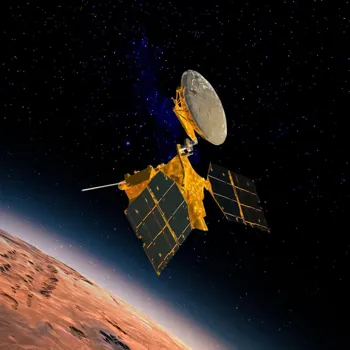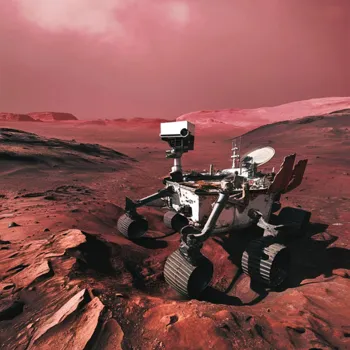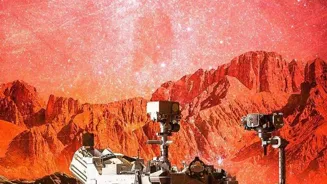Dream of Mars Colonization: Challenges & Opportunities for India - A Fascinating Journey Awaits! Read on for insights!
The dream of becoming a multi-planetary species, once confined to the pages of science
fiction, is rapidly hurtling towards reality. Mars, the alluring red planet, holds immense fascination and is increasingly viewed as the next frontier for human expansion.
With advancements in rocketry and a renewed global interest, the possibility of establishing a permanent human presence on Mars feels tantalizingly close.
However, the path to Martian colonization is paved with formidable challenges that need to be addressed before we can truly call the red planet our second home.
This article delves into the potential and the problems hindering this monumental endeavor, focusing on the perspectives relevant to Indians and the contributions our nation can make.
Space organizations worldwide are actively designing reusable rockets to make spaceflight more economical, as is crucial for transporting substantial equipment to Mars. International collaboration is key, with space agencies sharing resources and research to overcome technological hurdles.
India's Mars mission showcases engineering prowess and potential for future Martian endeavors
India, with its renowned space program, has already etched its name in Martian history. The Mars Orbiter Mission (Mangalyaan), a resounding success achieved at a fraction of the cost of similar Western missions, showcased India's engineering prowess and cost-effective approach to space exploration.

This achievement instilled a sense of pride and ignited a spark of interest in space among the Indian youth. The mission's success demonstrated that India could be a significant player in the global space race and a valuable partner in future Martian endeavors.
Looking ahead, India's expertise in frugal engineering and innovative problem-solving can be instrumental in developing affordable and sustainable solutions for Martian colonization. We need to focus on technologies that can be adapted to the resource-constrained environment of Mars.
One specific direction to aim for could be creating technologies applicable here on Earth, which could be further tested. This could be a win-win situation.
Challenges of Mars exploration: distance, radiation, atmosphere, cost
One of the most pressing concerns is the sheer distance and the hostile environment of Mars. The journey alone takes approximately six to eight months, exposing astronauts to harmful cosmic radiation and psychological strain of prolonged isolation. Upon arrival, the challenges intensify.
Mars has a thin atmosphere, composed primarily of carbon dioxide, lacking the oxygen necessary for us to breathe freely. The temperature is harsh, averaging around -62 degrees Celsius (-80 degrees Fahrenheit), with extreme temperature fluctuations.
The planet's surface is bombarded by radiation, and there is no liquid water (only ice) on the surface and no protective magnetic field like Earth has.
These conditions pose serious threats to human health and require the development of advanced life support systems, radiation shielding, and robust habitats that can withstand the harsh Martian environment. The cost involved in building such infrastructure is significant.
Finding solutions for radiation shielding has to be of ultimate importance.
Sustaining Mars colony with closed-loop ecosystem; challenges and solutions
Sustaining a colony on Mars requires establishing a closed-loop ecosystem that can provide food, water, and breathable air. Growing food on Mars presents unique challenges due to the soil's composition (presence of perchlorates), lack of essential nutrients, and radiation exposure.

Developing innovative agricultural techniques, such as hydroponics or aeroponics, and genetically modified crops capable of thriving in Martian conditions is essential. Water extraction from Martian ice and recycling systems will be crucial for ensuring water availability.
Generating breathable air from the Martian atmosphere, perhaps through in-situ resource utilization (ISRU) techniques, is another critical element.
India's agricultural expertise, particularly in sustainable farming practices and drought-resistant crops, can contribute significantly to developing Martian agriculture, given that several parts of India struggle with water availability as well.
This is one place where there are potential solutions.
Ethical challenges in Martian exploration: tech, environment, ownership, cooperation key
Beyond the technological and environmental hurdles, ethical considerations also loom large. How do we ensure the long-term survival and well-being of Martian colonists? What are the potential impacts of colonization on the Martian environment if there are hidden life forms on Mars?
What is the role of individual space agencies? How do we prevent interplanetary contamination? Questions about who owns Mars may also arise. Establishing ethical guidelines and legal frameworks for Martian activities is crucial to ensure responsible exploration and colonization.
International cooperation and open dialogue are vital to address these complex ethical dilemmas and prevent conflicts in the future. India's tradition of peaceful co-existence and its commitment to international law can play a valuable role in shaping ethical principles for Martian exploration.
Martian colonization offers immense benefits for humanity, sparking innovation and scientific discoveries
Despite the numerous challenges, the potential benefits of Martian colonization are immense. Establishing a self-sustaining colony on Mars would be a giant leap for humanity, expanding our reach beyond Earth and safeguarding against existential threats.

It would also drive technological innovation, fostering advancements in areas such as robotics, materials science, and energy production.
Mars could also yield valuable scientific discoveries, providing insights into the formation and evolution of planets, the potential for life beyond Earth, and the history of our solar system.
The lure of discovery is a strong motivator, and the pursuit of Martian colonization has the potential to unlock groundbreaking knowledge and inspire a new generation of scientists and engineers.
Space missions have the potential to spark further innovations as a byproduct, that are actually used her on Earth.












